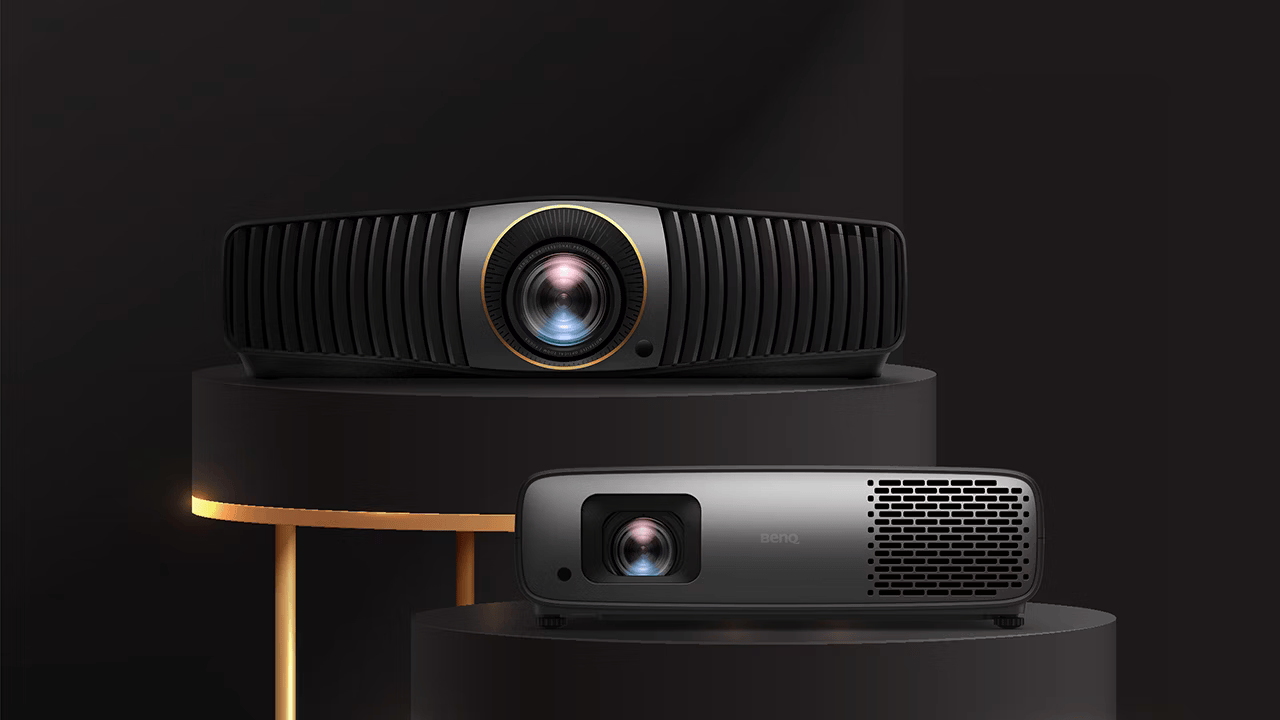Best budget record players 2025: affordable turntables tried and tested
Talented, appealing decks that won't break the bank
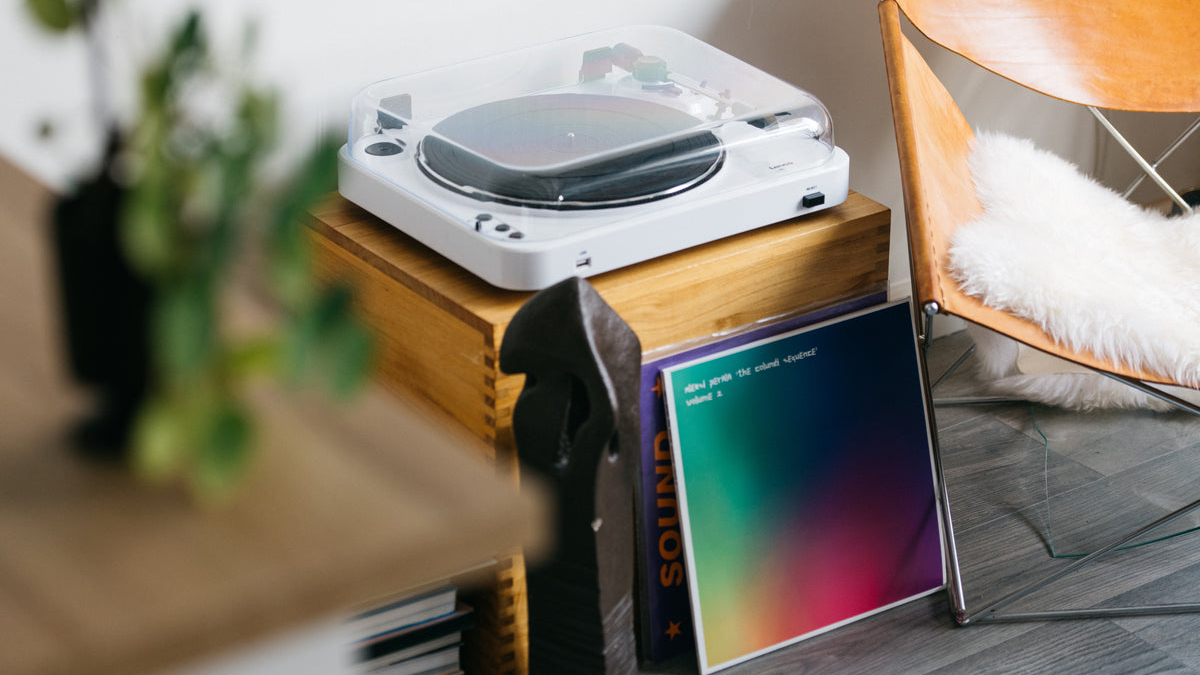
The love for vinyl is still going strong, with vinyl sales rising and more versatile, feature-packed turntables (as well as purist design) being released with regularity. But you don't have to spend thousands on a good turntable – where there are plenty of cheap, rather poorly-made models that want to appeal to the eye more than the ear, there are equally plenty of genuinely affordable record players that are well-made, sound good, and will make your records sing.
While our main guide to the best turntables covers budget, mid-range and high-end models, in this guide we are focusing on turntables (also called record players) that can be bought for well under £500/$500. These include purist hi-fi designs for astonishing good value, as well as models with built-in phono stages, Bluetooth streaming and automatic operation for a fuss-free, compact vinyl set-up.
There are plenty of budget turntables on the market these days, but many are of poor build quality and deliver poor performance. A feature-packed ultra-budget deck may seem like a great deal, but considering how pricey vinyl records themselves are these days, it is worthwhile to ensure that the turntable, no matter how cheap, is built to a good standard so it can play your records as accurately as possible and without damaging them. Essentially, it's no point paying for a budget turntable if you can't hear the benefit of the physical format – you might as well stick to Bluetooth streaming.
All the turntables on this list have been reviewed by our experienced in-house team and in dedicated test rooms, so you know you'll be getting genuine first-hand advice. You can read more about our turntable testing process and get in-depth advice about choosing your turntable, or simply scroll down to see our favourite budget record players we heartily recommend.
The quick list
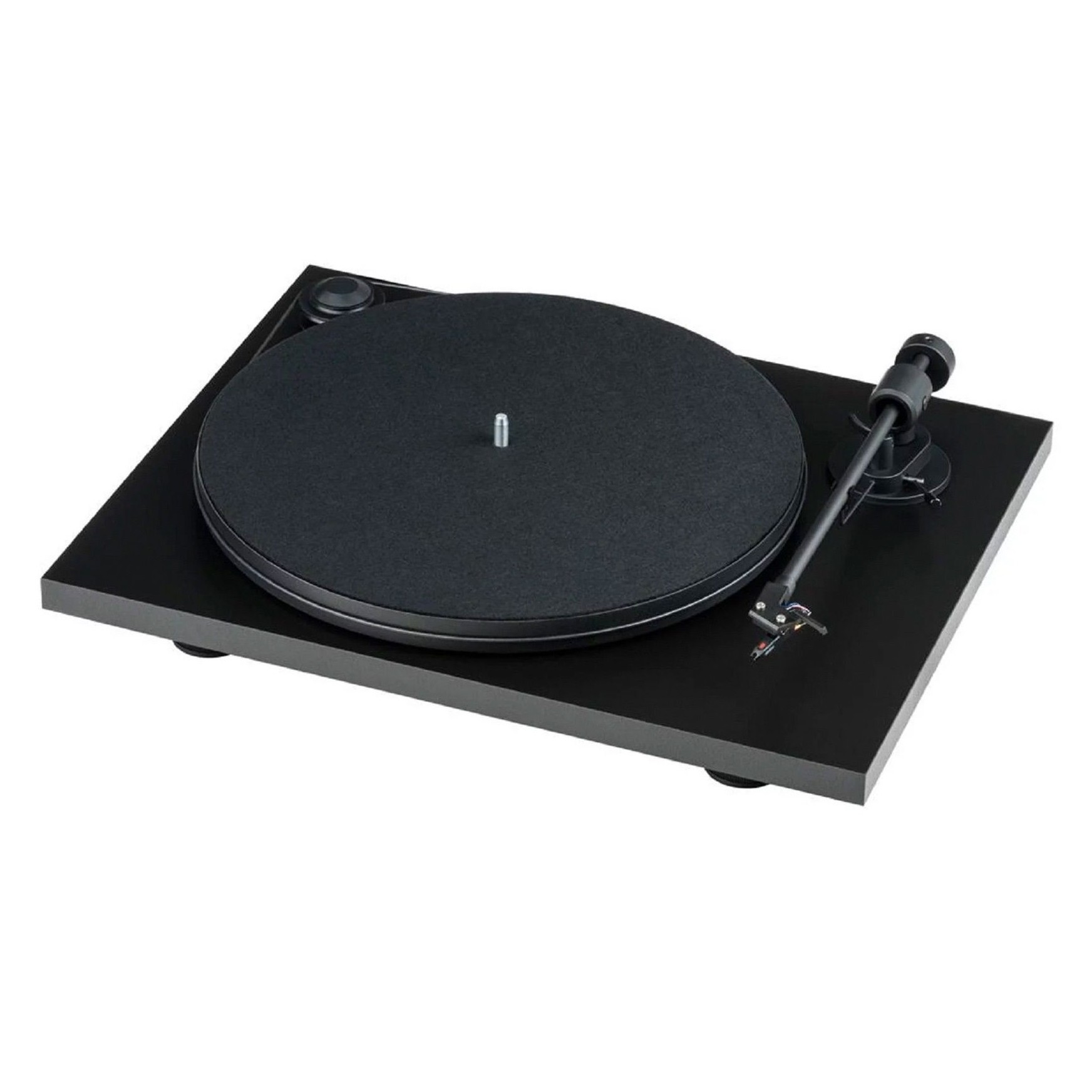
The best budget turntable for most people, this superb deck nails all the basics while delivering an enjoyable, clean sound.
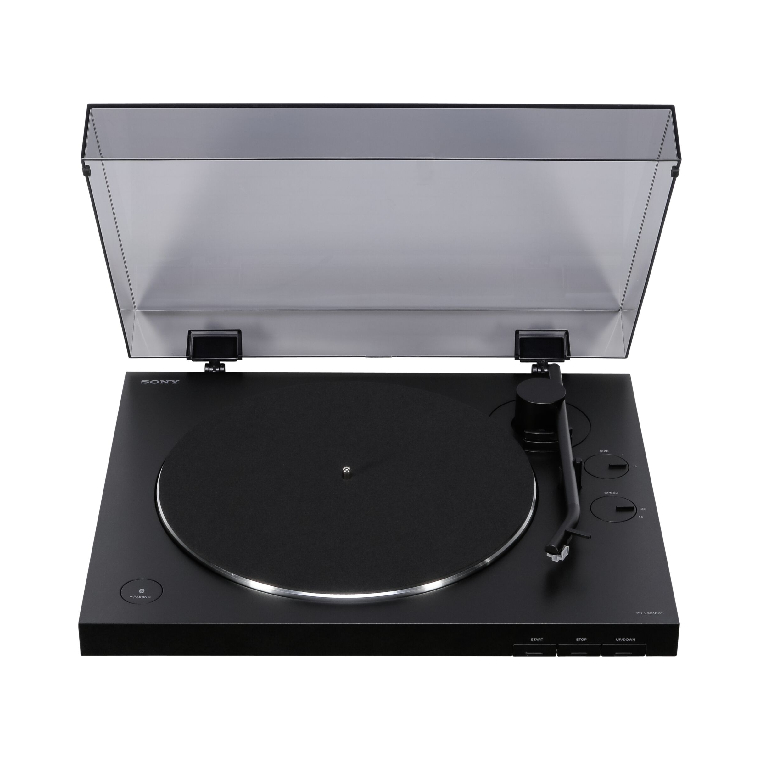
If wireless streaming is top of your wishlist, this long-running user-friendly Sony Bluetooth deck is a real winner.
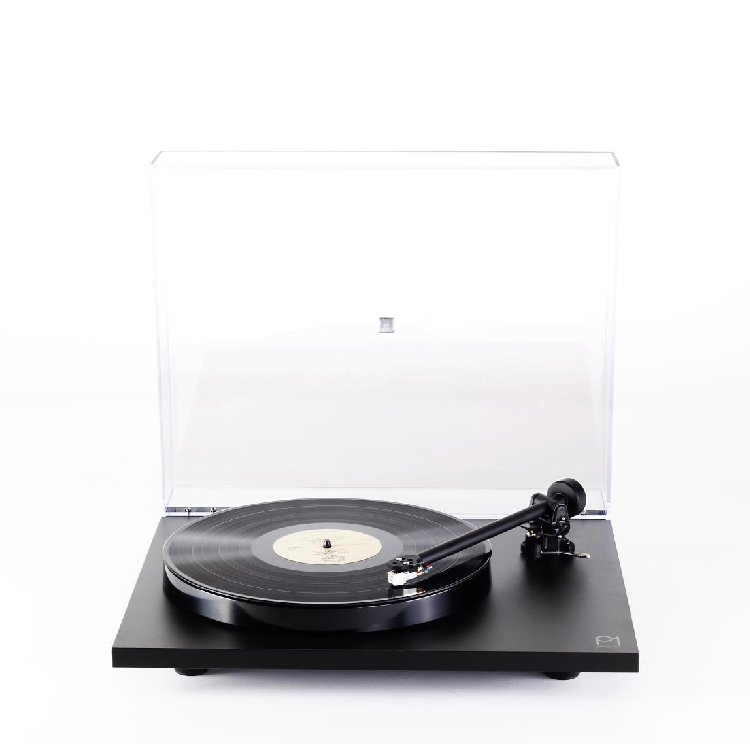
It might come at an entry-level price, but the Planar 1 is the ideal first rung in the journey for an audiophile turntable.
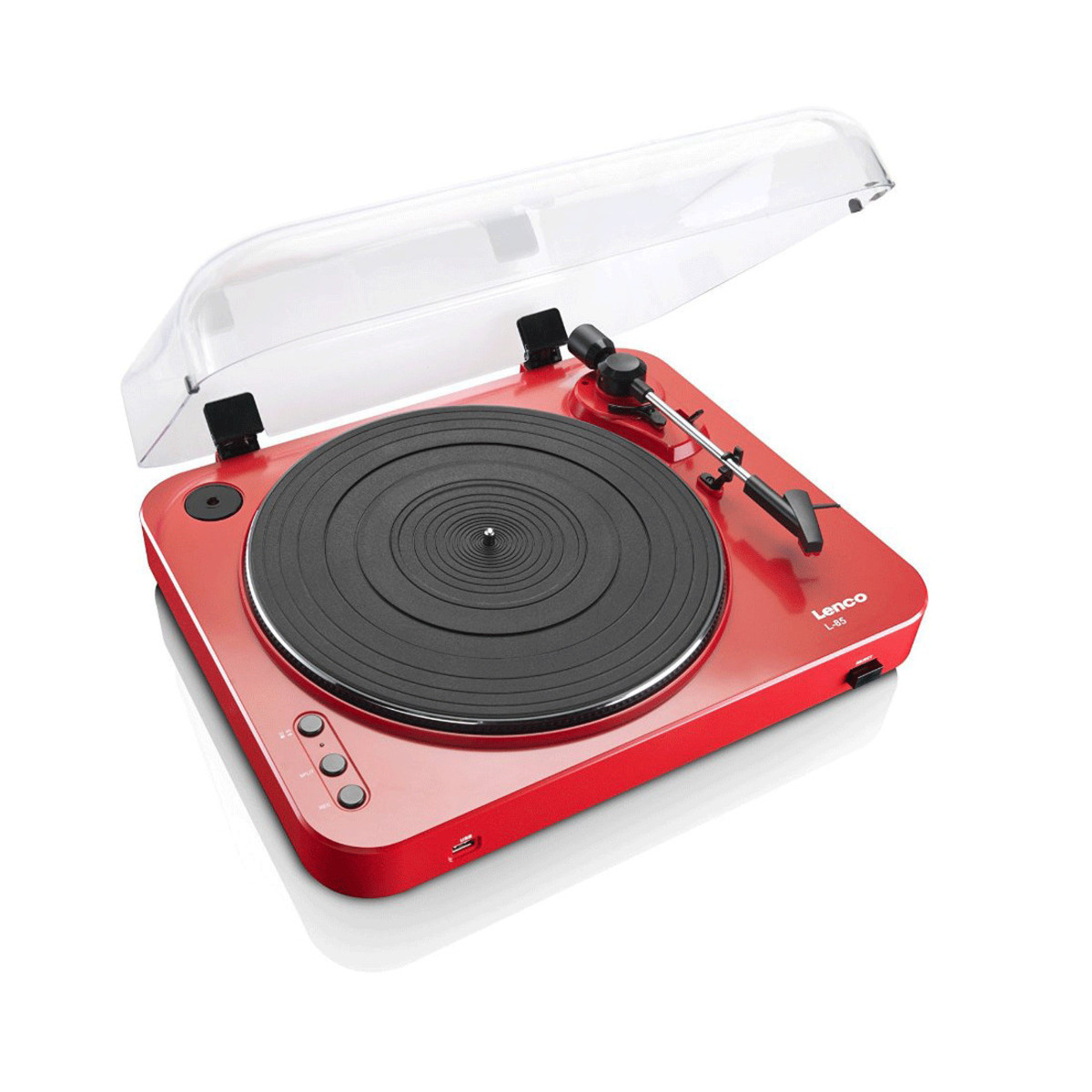
Its plastic chassis gives away its bargain price but this plug-and-play deck is great for vinyl newbies looking for a starter turntable.
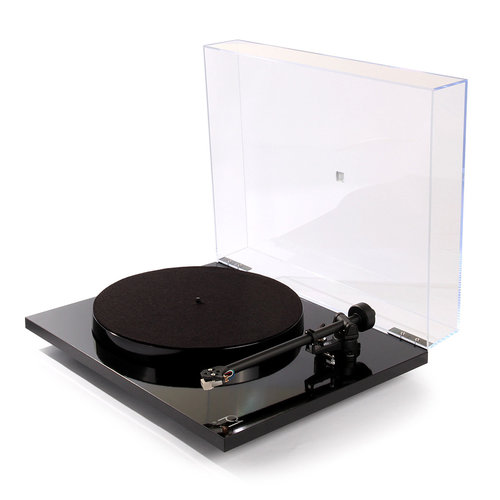
Looking to add to your setup but don’t have a phono stage? Look no further than the superb Planar 1 Plus.

I've been testing and reviewing turntables for over a decade, and have first-hand experience with every model on this list. There are plenty of affordable, beginner-friendly and trendy-looking turntables on the market these days that might tempt you, but be aware that not all of these record players will do the delicate job of reading the tiny grooves on a record with accuracy; some might even damage them. My curated list of the best budget turntables below all deliver a good standard of build quality and performance for the money, so you know your vinyl collection will be in safe hands for years to come.
The best budget turntable overall
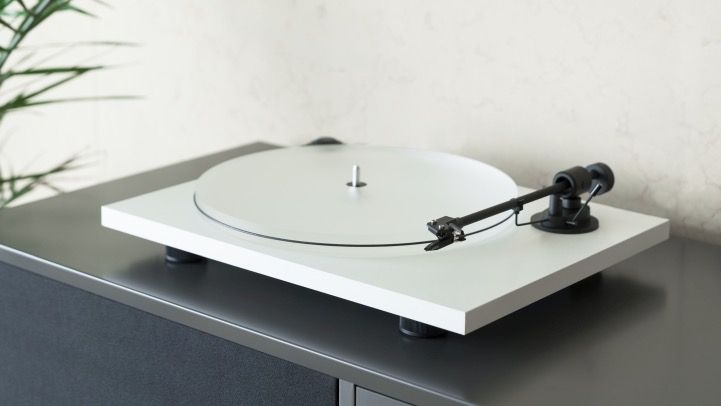
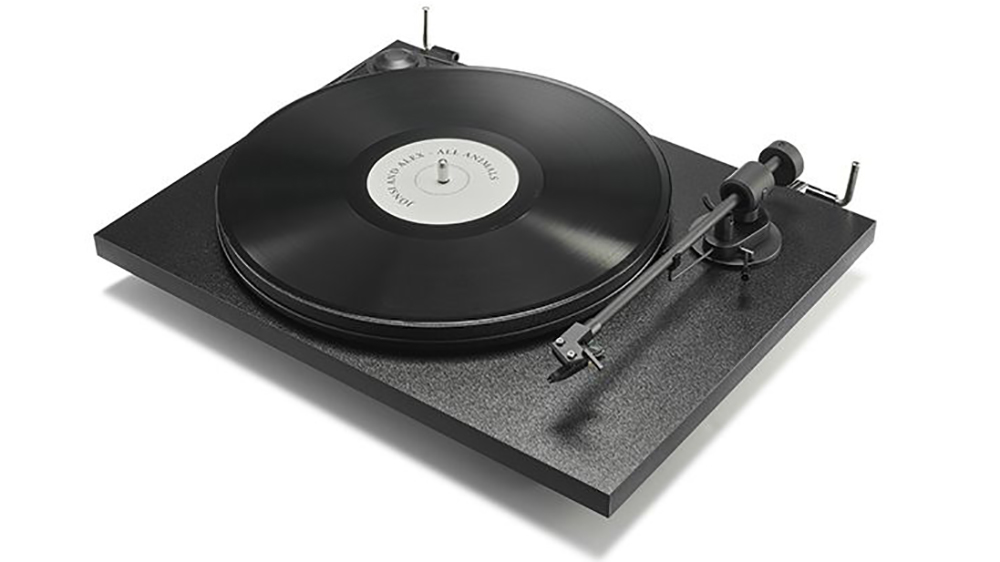
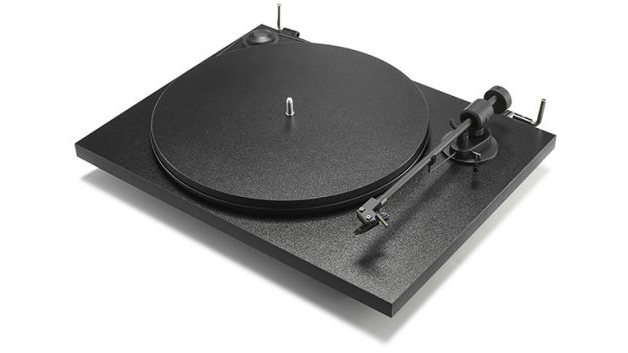
Specifications
Reasons to buy
Reasons to avoid
As its current What Hi-Fi? Award attests, the Pro-Ject Primary E is still our pick of the bunch as a truly affordable gateway into the world of vinyl.
The Primary E looks almost identical to the original Pro-Ject Primary, a sparsely designed turntable that also boasted a 22cm tonearm and Ortofon MM cartridge. The only real difference with this model is that the power supply is built into the deck, plus you've only got the choice of having it in a black colourway rather than the previous model's rather fetching red and white options. The current E model originally cost £150 but it's now sat steady at £199 for a good few years.
£199 isn’t much for a turntable by anyone’s estimate, but the Primary E confidently nails the basics, providing an even tonal balance and a delivery that’s clear, clean and spacious enough to keep things coherent and enjoyable. Decent body and substance cling reliably to every frequency, made all the more enjoyable by a spirited sense of drive and momentum. We said in our review: "We lay down The National’s Trouble Will Find Me, and the Pro-Ject wilfully promotes the LP’s warmth and sweetness, communicating Berninger’s vocals as well as the contrasting sense of effort behind the track’s drum beats... By the time we reach the final track, Hard To Find, we’re asking ourselves what more we could want from a budget deck. Realistically, very little."
So impressed are we with the Primary E, that it’s won the best turntable under £200 trophy at the What Hi-Fi? Awards for six years in a row now. If you’re looking for your first turntable, this purist-design Pro-Ject is by far the better performer than all other trendy alternatives at this price. If you want to know what the big deal is with vinyl, this is the first place to start.
Read the full Pro-Ject Primary E review
The best budget Bluetooth turntable
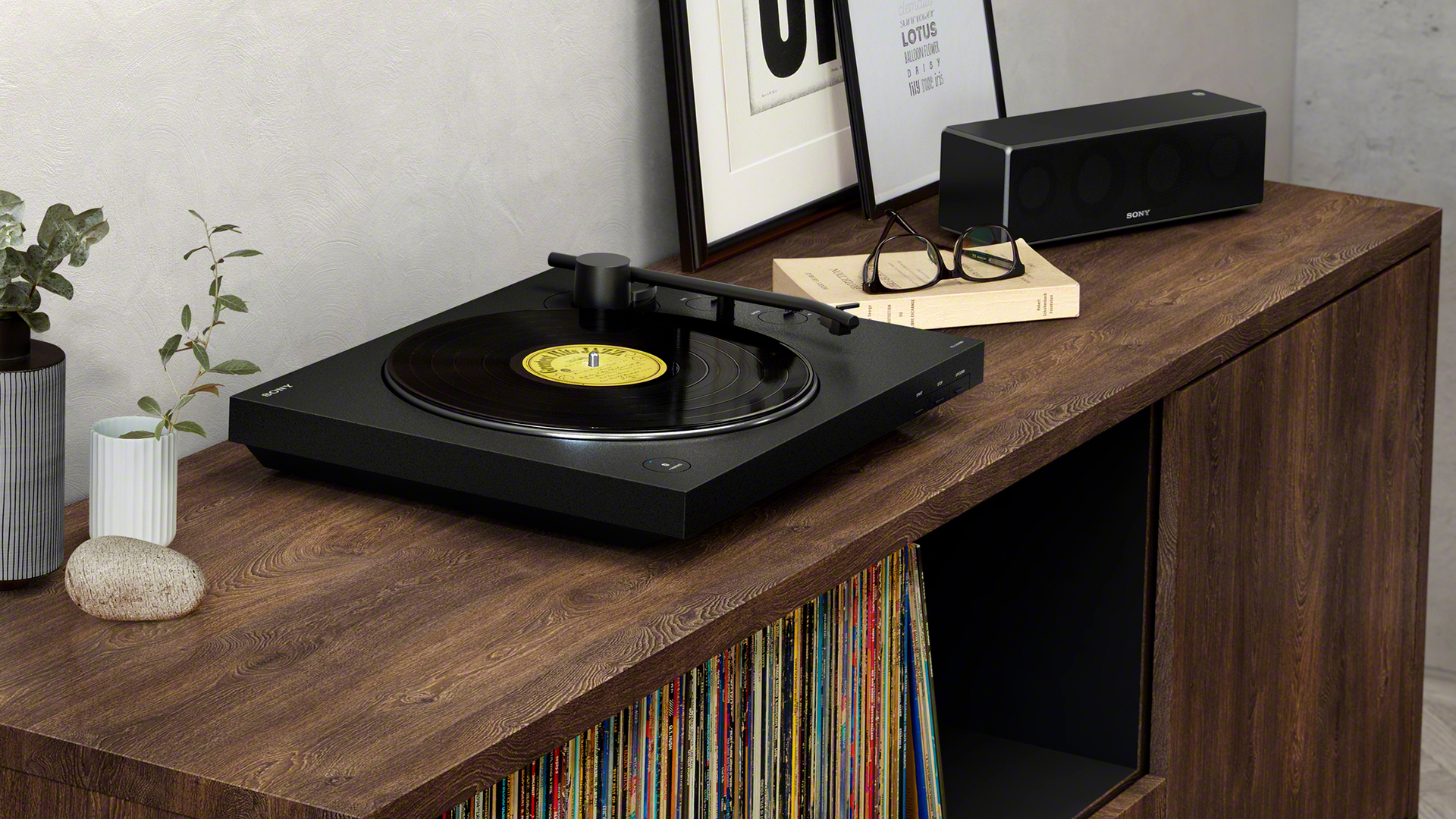
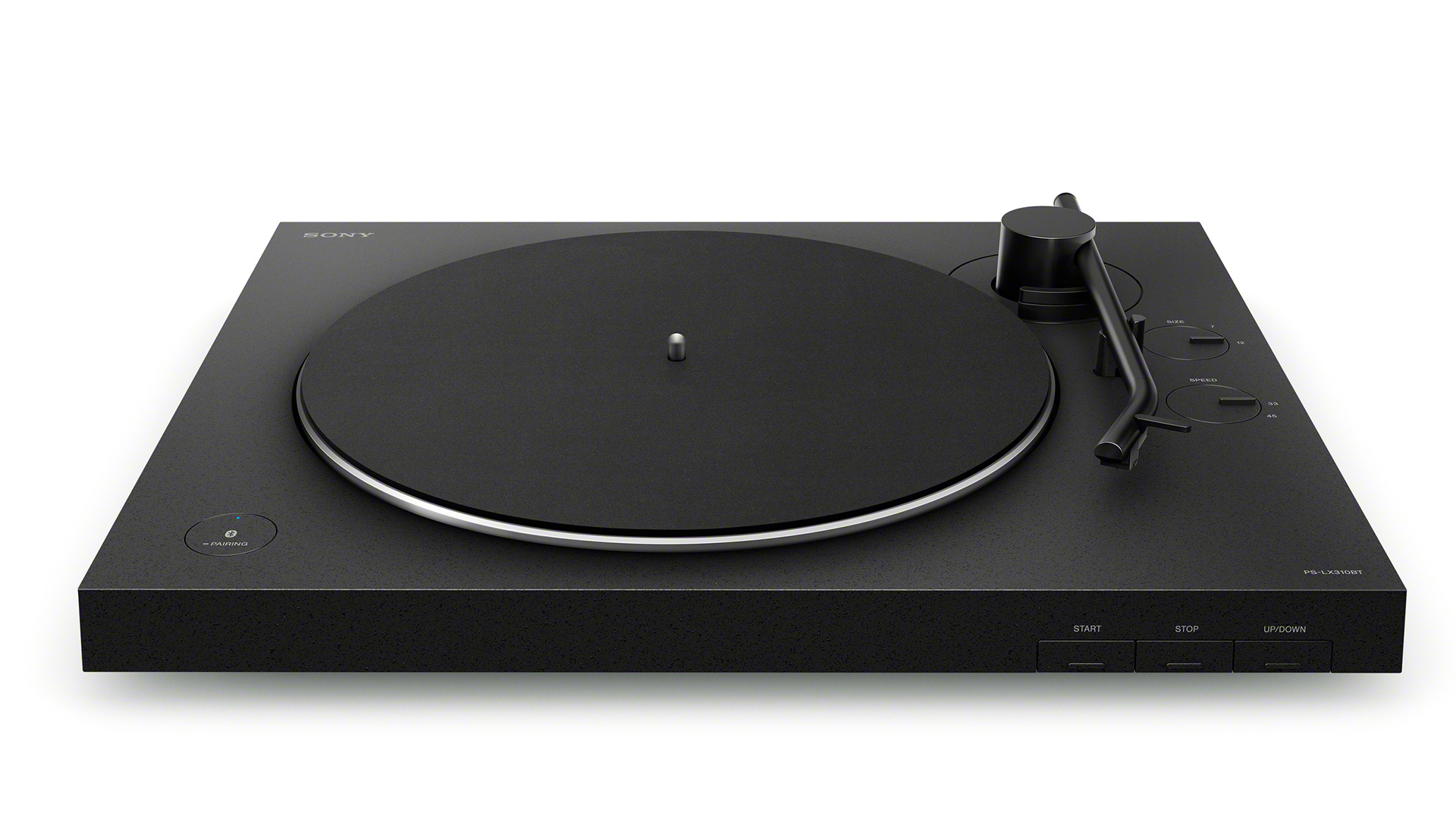
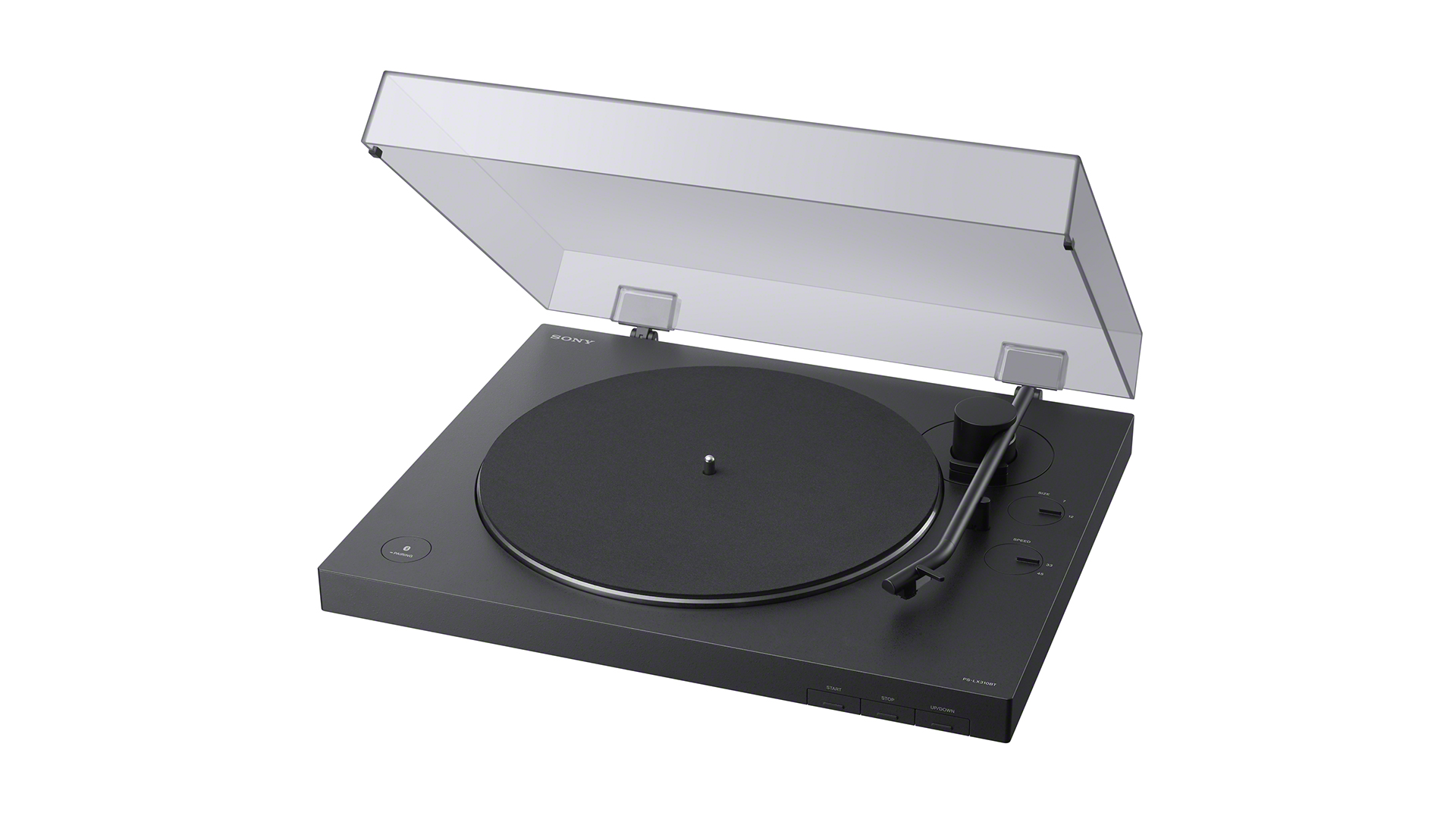
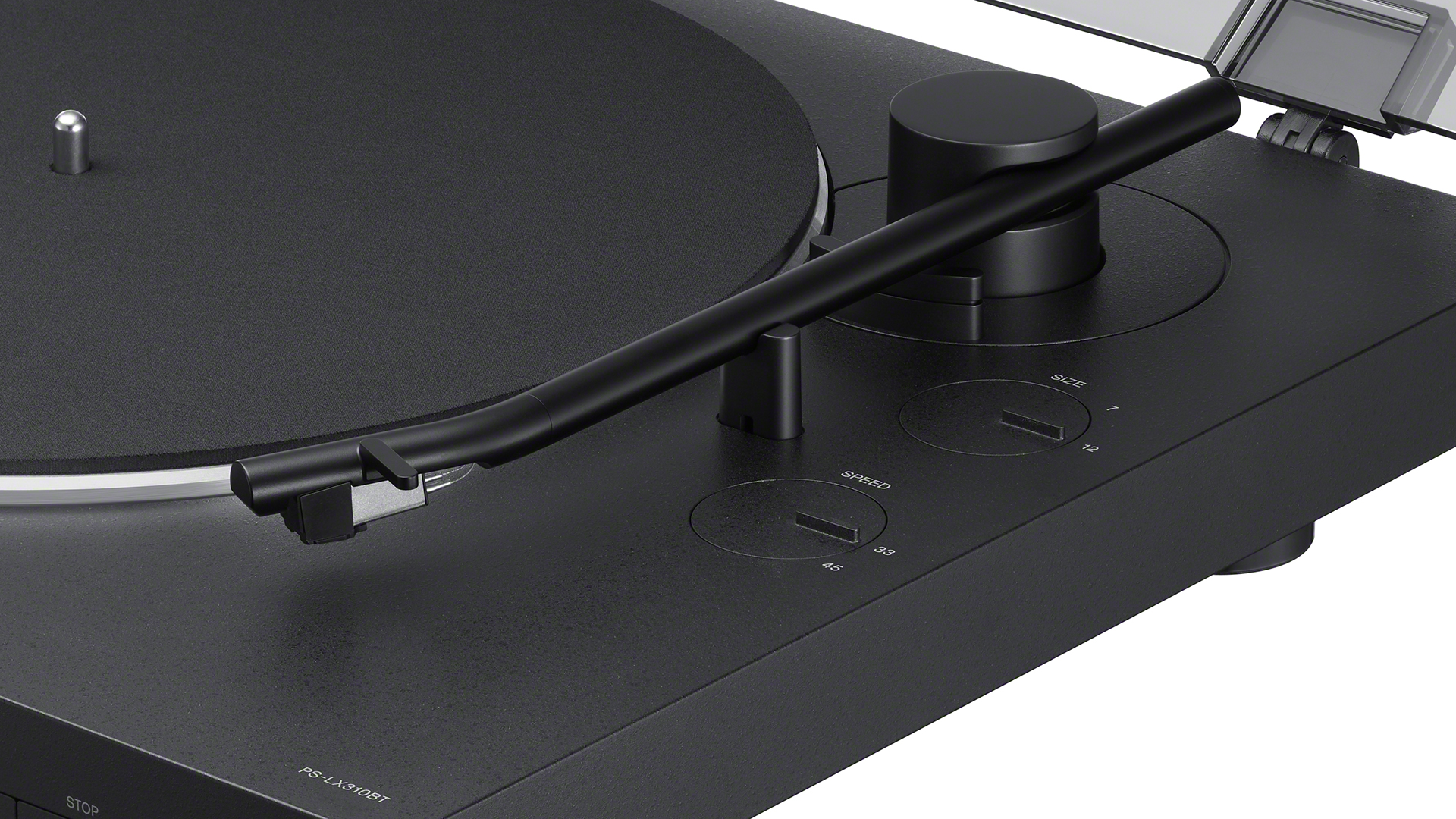
Specifications
Reasons to buy
Reasons to avoid
This Sony deck has been around for years, but remains a top choice if you want Bluetooth and fuss-free vinyl spinning – we're always on the lookout for a drop in price during any sales events throughout the year.
While the name "PS-LX310BT" might not be the easiest to get your gums around, Sony’s fully automatic Bluetooth turntable is a cinch to use, working straight out of the box and providing a pleasing, stress-free vinyl experience.
There’s also a very decent built-in phono stage, with strong Bluetooth connectivity that works with up to eight devices – meaning you can stream your vinyl to a pair of wireless headphones or a Bluetooth speaker. The very best decks for the same money can beat it for pure sound quality, but you won't find many as fun, ridiculously user-friendly, and resoundingly listenable as the PS-LX310BT.
We’ve come to expect this sort of customer-friendly usability from Sony, but what we hadn’t quite prepared for was just how good the PS-LX310BT sounds. Sure, purists may look elsewhere for more detailed and dynamic alternatives (such as the Pro-Ject and Rega models on this list), but Sony’s budget effort still provides an entertaining sound with a healthy dose of drive and attack.
If you want something fun, user-friendly and unquestionably listenable to get your vinyl adventure started – plus the added convenience of Bluetooth – the PS-LX310BT is a five-star recommendation. If you want something that looks a little flashier, Audio Technica's pricier AT-LPW50BTRW is also newer, but Bluetooth pairing is fiddlier.
Read the full Sony PS-LX310BT review
The best budget hi-fi turntable
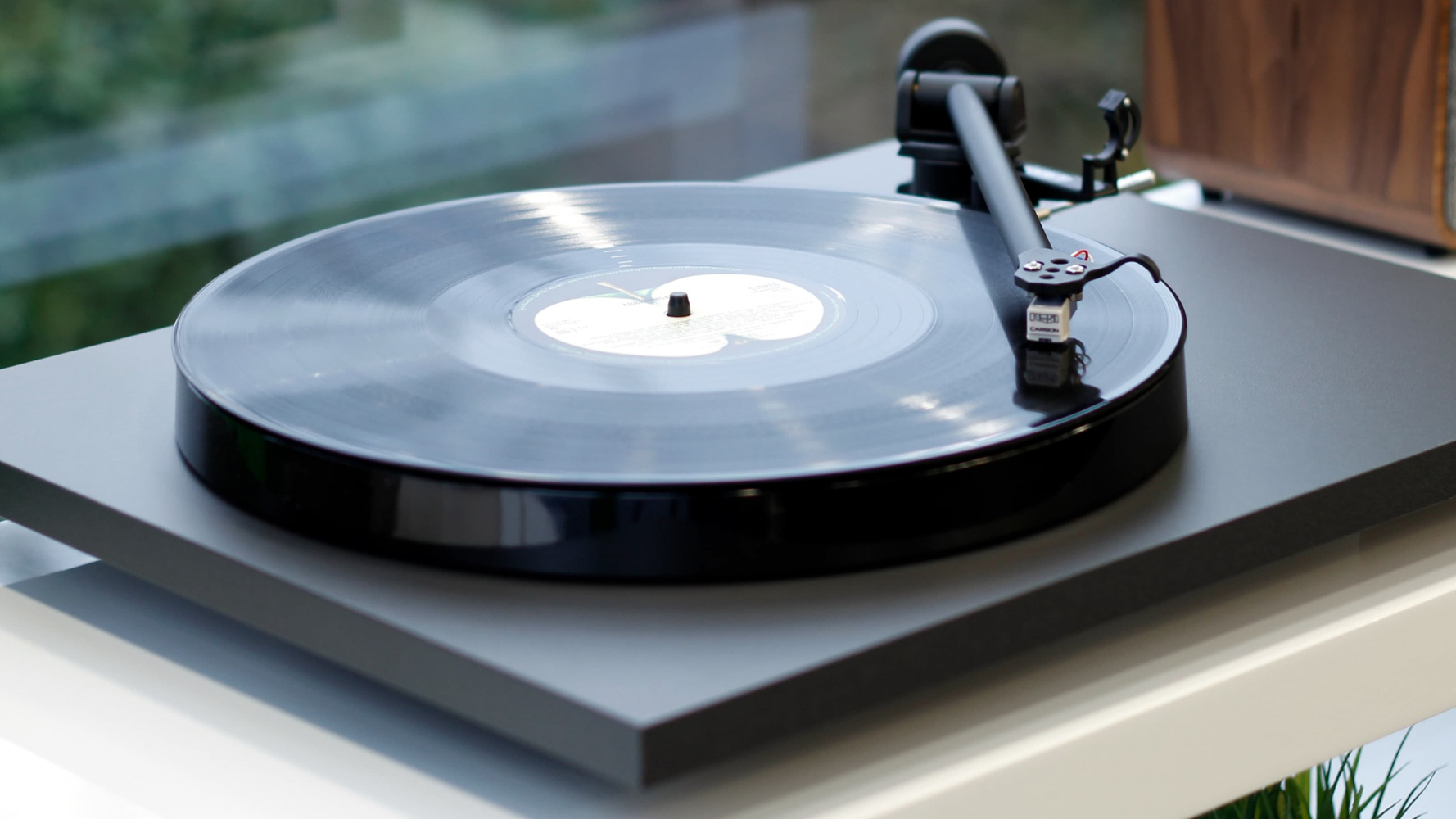
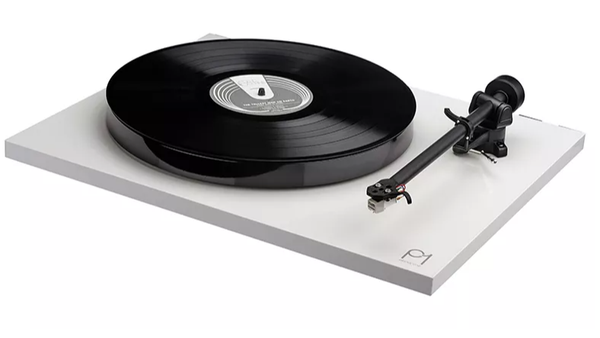
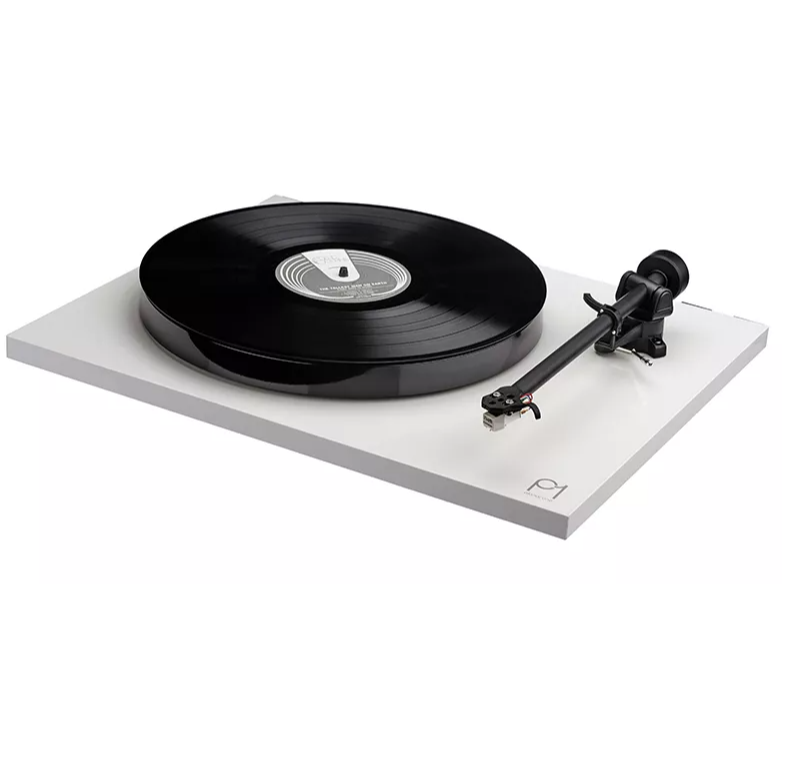
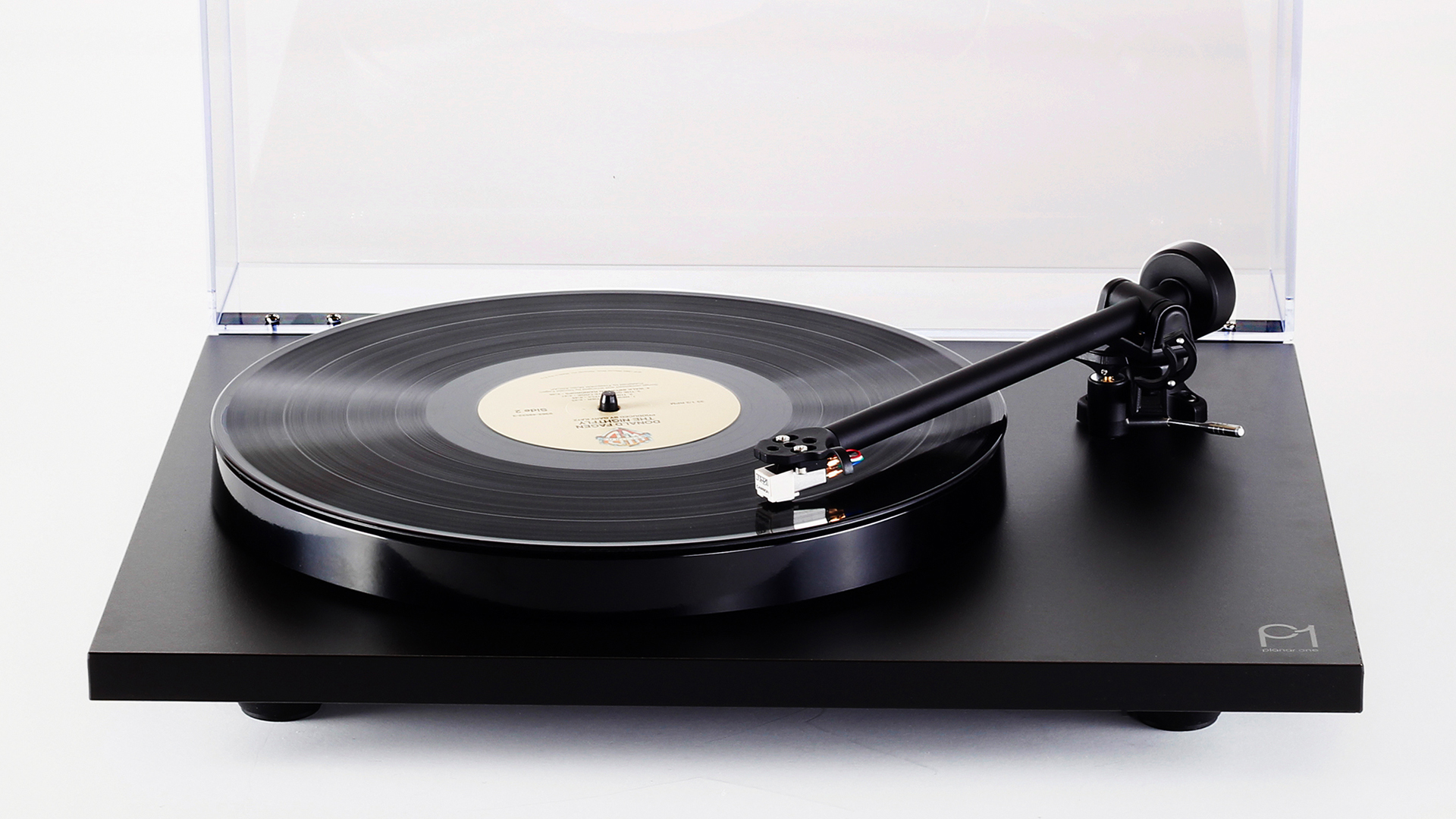
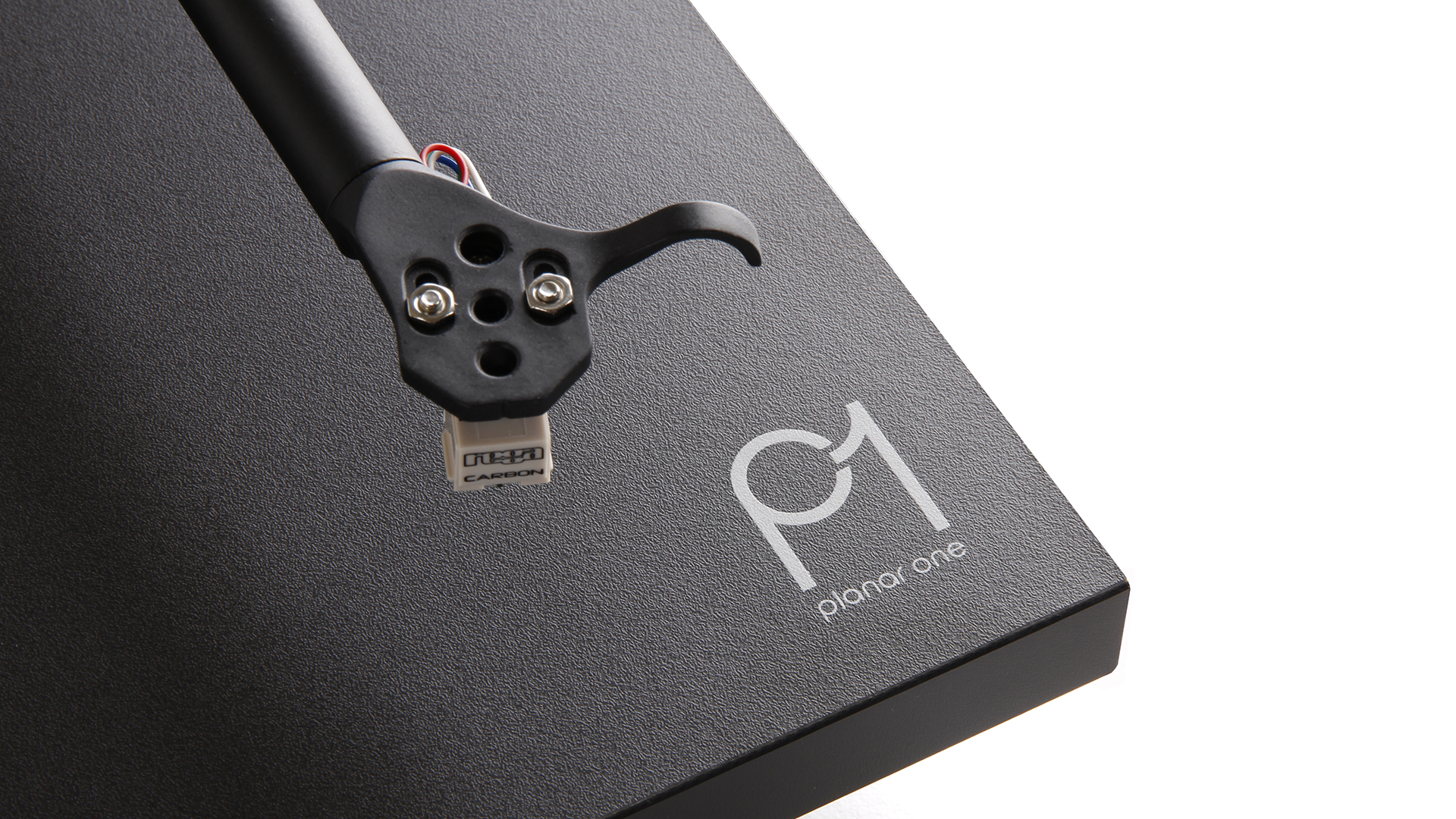
Specifications
Reasons to buy
Reasons to avoid
If you're happy forking out a little bit more (around £100 or so), the Rega Planar 1 is a substantial step up from the excellence of the Pro-Ject Primary E at the top of this list.
Rega provides consistent excellence across its range of turntables, taking as much time and care with its budget offerings as it does with its high-end heavyweights. The Rega Planar 1 is the cheapest turntable Rega makes, but the fact that it's been a What Hi-Fi? Award-winner since 2016 shows just how remarkable it is for the price. Built superbly to Rega’s typically high standards and featuring a Rega Carbon cartridge attached to a new RB110 tonearm, the Planar 1 is easy to use, simple to set up and hardly offensive to the eye.
It sounds great, too. Rega’s forensic attention to detail results in a roomy, spacious sound that never skimps on the particulars, while voices sound rich, full-bodied and alive. The Planar 1 delivers a combination of clarity and accuracy that's almost unparalleled at this reasonable price, providing an exciting and engaging experience no matter what you throw at it. It’s a clear step up in performance from the Pro-Ject Primary E when it comes to rhythmic ability, and if you’re able to spend the extra dosh, it’s absolutely worth it.
"Even as an entry-level turntable, this is the kind of player that could feasibly be the last of your system’s components you’d feel necessary to upgrade," we said in our original review. Even though it's a fully manual deck with no fancy extra features, its performance is unbeatable at this price.
Read the full Rega Planar 1 review

When setting up a turntable, you'll need to ensure that the tracking weight of your cartridge and tonearm (also known as tracking force) are set correctly. Get this crucial element wrong, and you'll either have a contact that's too low - and thus thin-sounding or barely audible - or too high and at risk of damaging your vinyl by weighing down too heavily on your records. Setting the tracking weight is done by moving a counterweight at the tonearm's rear, set to a figure according to the cartridge maker's recommendation. You also need to adjust the tonearm for 'bias', which is the sideways force on the cartridge that balances the record's inward pull. This figure is usually the same as the tracking weight, but it's best to check the turntable brand's website to make sure.
The best budget turntable for beginners
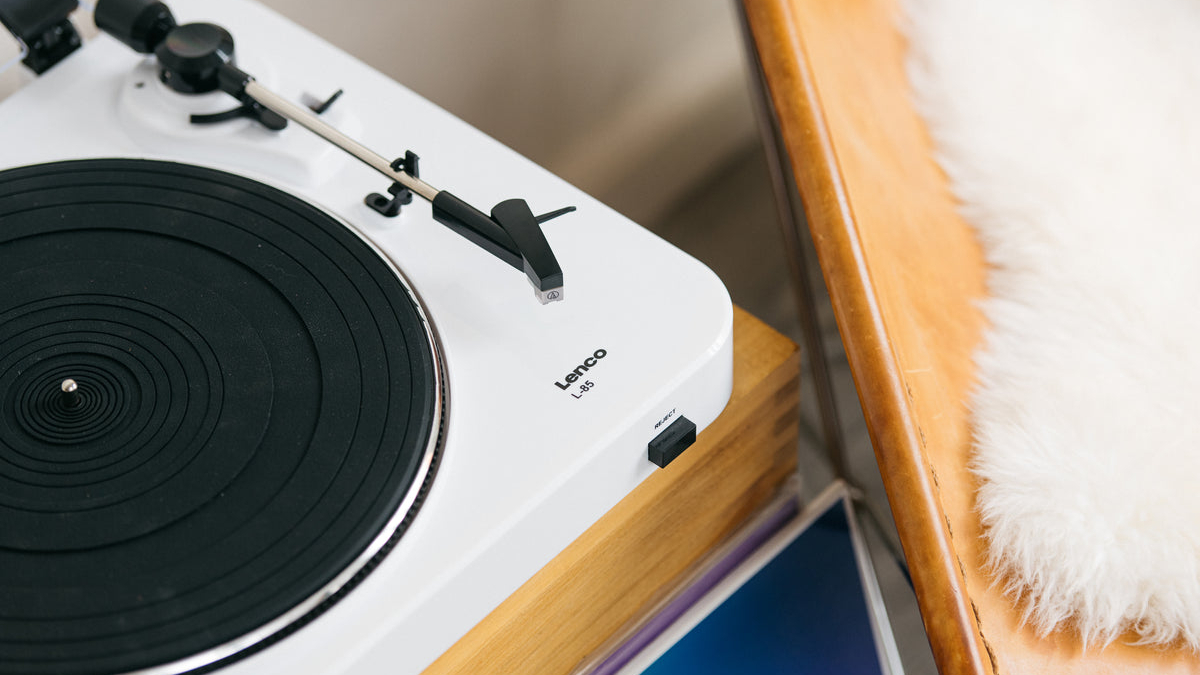

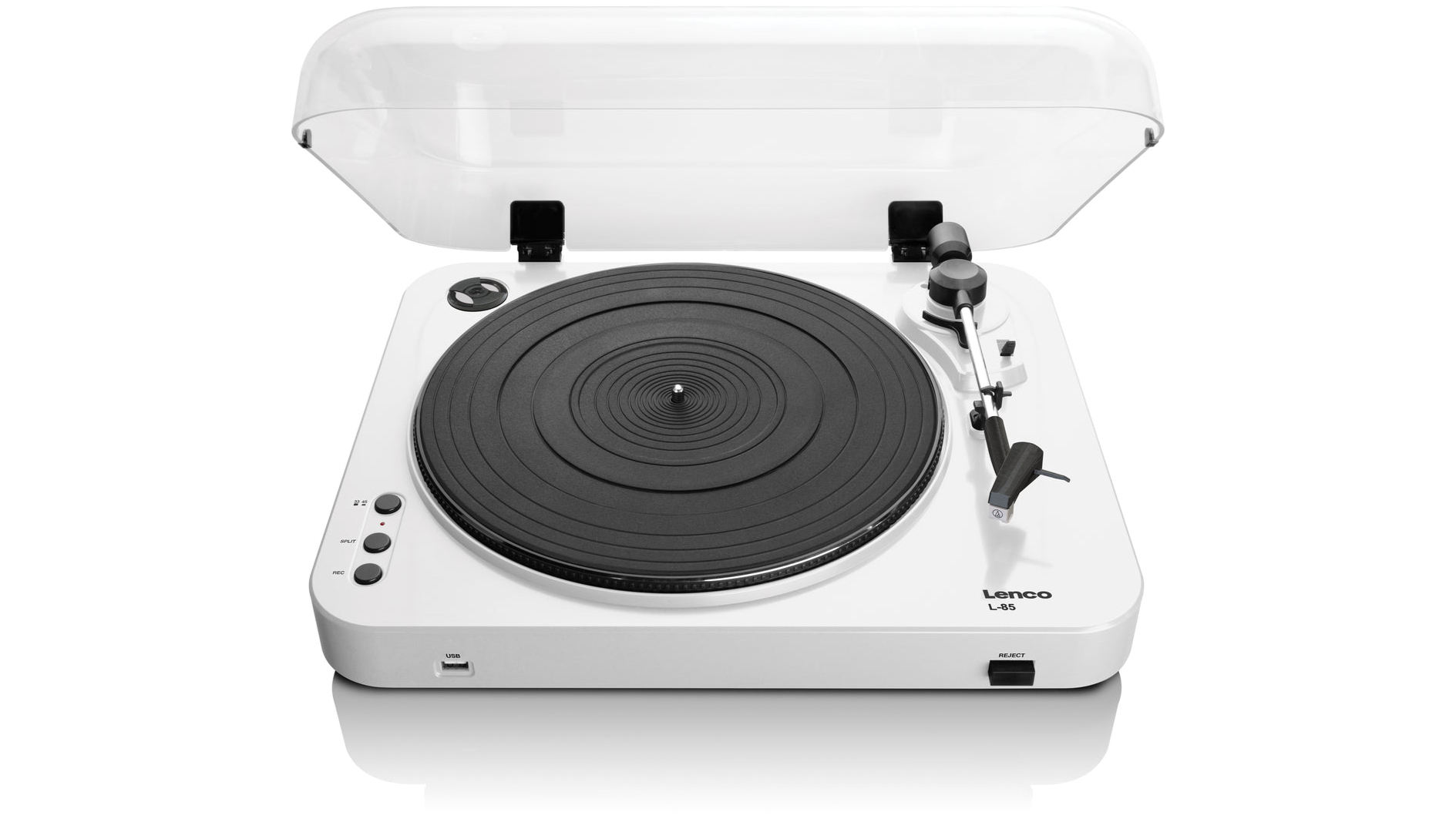
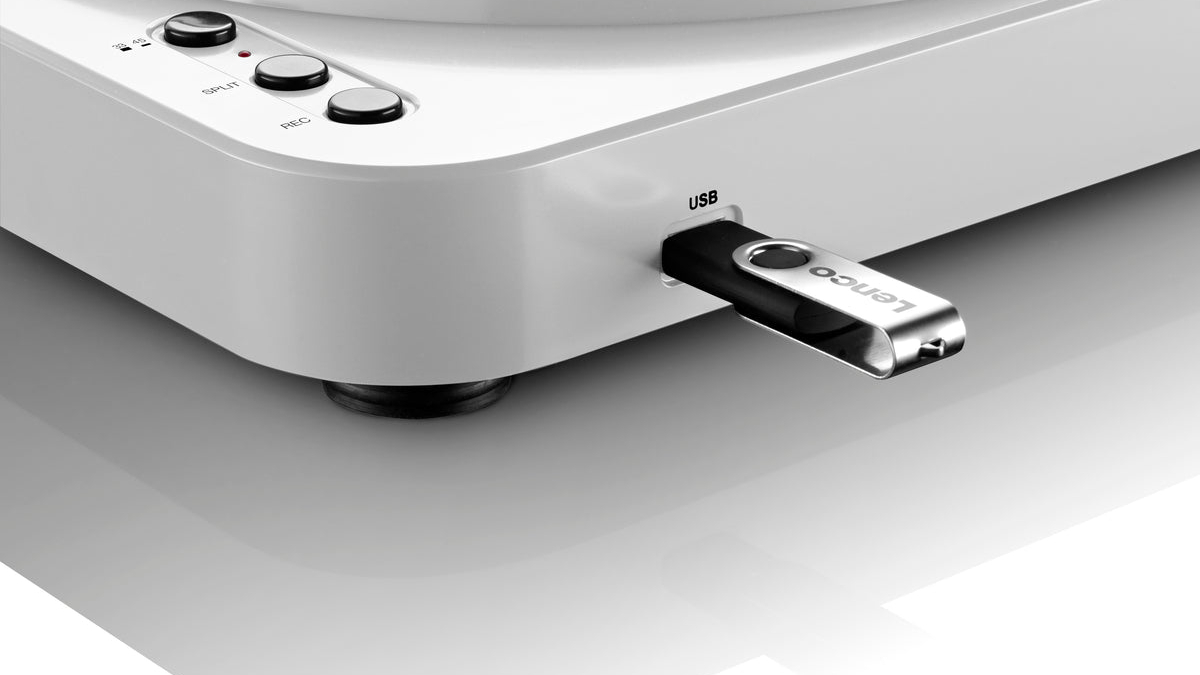
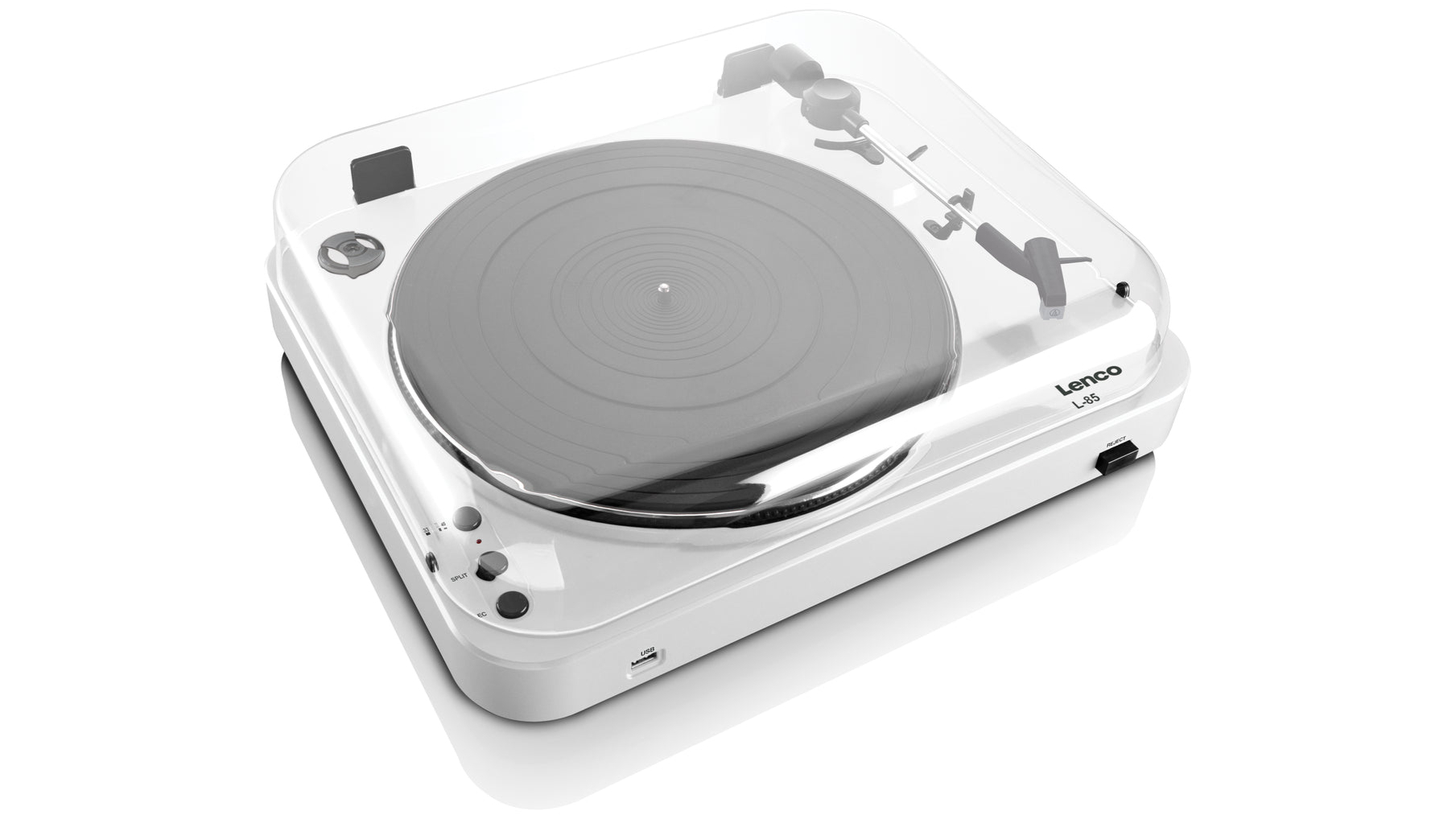
Specifications
Reasons to buy
Reasons to avoid
If budget really does mean budget, you’ll be hard-pressed to find a better plug-and-play turntable than Lenco’s eye-catching, cheap-and-cheerful L-85, which can often be found at prices between £80 to £130. The semi-automatic, belt-driven turntable features a built-in phono stage and even supports USB recording so you can rip vinyl into MP3 files, so a desire to save money doesn’t starve you of features. Even the plastic build quality is decent for the price, and various colour options are theoretically plentiful, although you might have to shop around to find the shade you want from the retailer who will actually provide it (this model has been around since 2016).
There are plenty of trendy, cheap turntables available that sound poor at best or damage our vinyl at worst, but this Lenco does what the others haven’t been able to: deliver a likeable, enjoyable sound in a competent manner – without, crucially, gouging our precious records. This isn’t the sort of turntable that’s going to blow you away with incomparable sonic heft and detail to make a sound engineer swoon, but for this price, you could certainly do a lot worse.
The Lenco L-85 handles vocals especially well, and while it’s not a remarkable performer for capturing rhythm or timing, the balance across the frequencies is admirably even and there are no coarse edges at the top end. In our original review, we equated the L-85 to the "DUPLO blocks you’d play with as a child before graduating onto proper LEGO sets", calling it a "beginner’s turntable that gives you all the basics with the promise of more exciting things, while still being enjoyable in its own right."
Whether it’s for your kids or you’re a student keen on vinyl but needing to save money, this is a decent place to start.
Read the full Lenco L-85 review
The best budget hi-fi turntable with phono stage
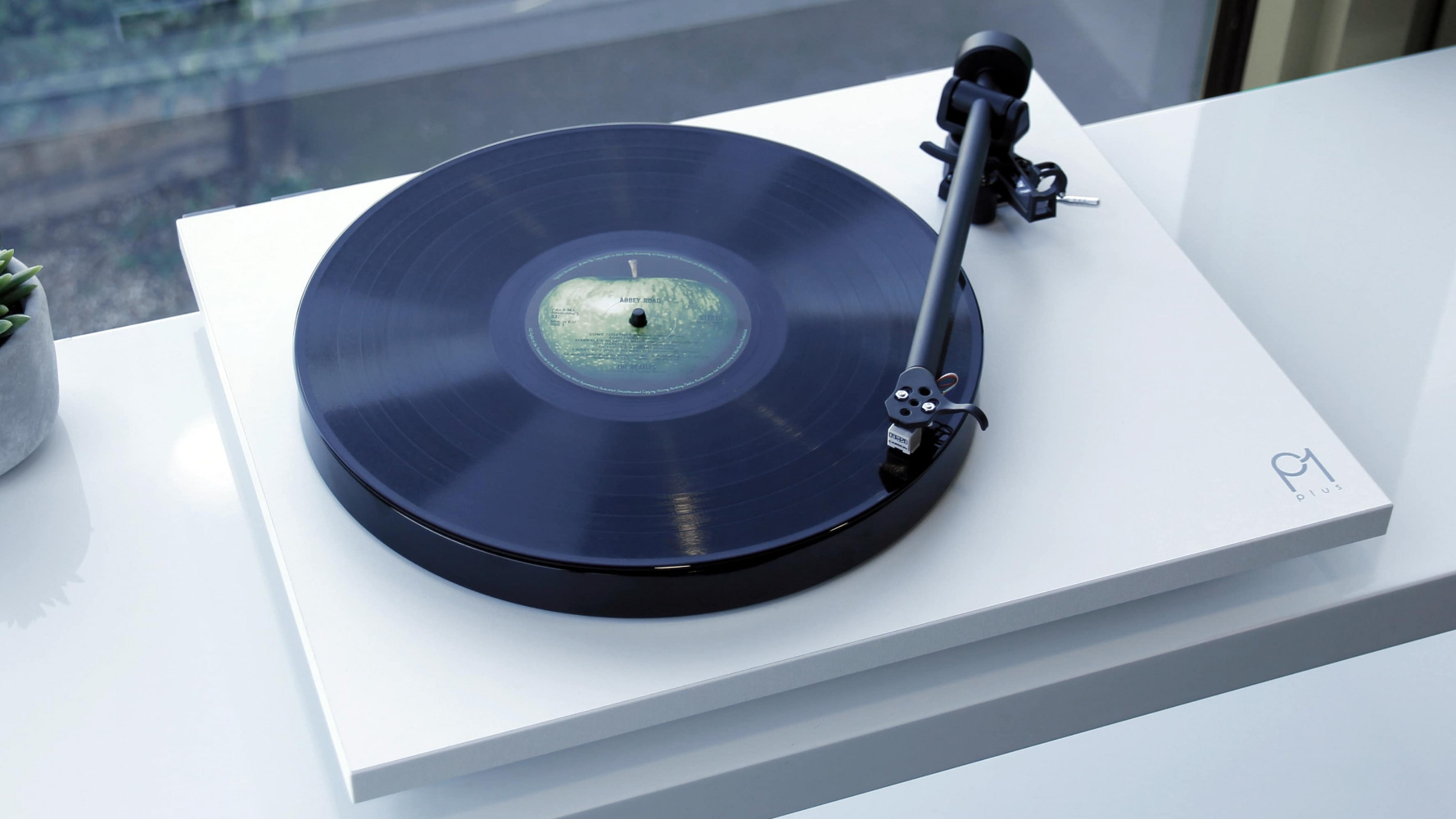

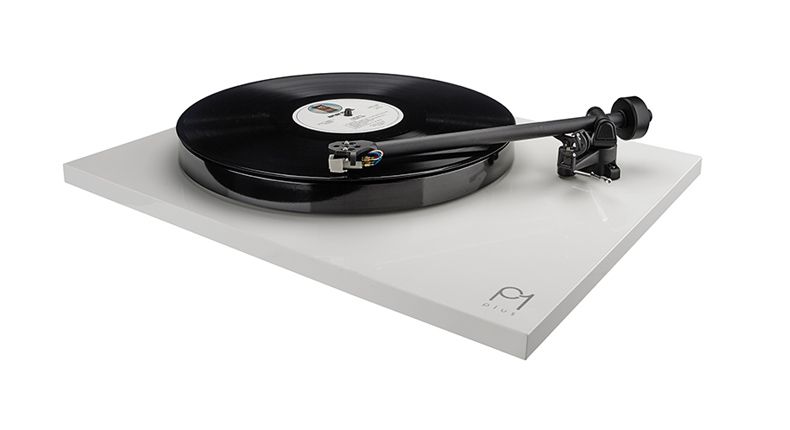
Specifications
Reasons to buy
Reasons to avoid
If you liked the sound of the excellent Planar 1 (above), then the Planar 1 with the added convenience of a built-in phono stage could well be music to your ears. You'll have to pay a little extra for the privilege, but, to our minds, it's worth it.
Rega tends to keep things pure on the analogue side, but it eventually succumbed to current trends and delivered the Planar 1 Plus, the first time the British brand has incorporated a turntable with its very own built-in phono stage. The result is a Rega Planar 1 turntable with the rather superb, five-star Rega Fono Mini A2D built-in (minus the USB-ripping powers). The Planar 1 Plus also costs less than if you were buying the two components separately, so the combination of both makes sense from a financial, as well as sonic, perspective.
Rega has built a reputation for bringing style, substance and consistently high audio standards with its turntables, and the Planar 1 Plus is no different. The deck looks identical to the straight Planar 1, which is no bad thing considering its sleek aspect and general ease of use.
It’s the audio quality, though, that makes the Plus a five-star triumph. Put simply, it sounds wonderful, and while it may take a while to fully reveal the warmth and depth of which it’s capable, give it a few days and it will be purring like the best. Rega's knack for delivering terrifically agile, subtle and hugely enjoyable dynamics is replicated in the Plus, with crispness and clarity with high frequencies, too.
We said in our review: "The Plus has open, spacious presentation too, with plenty of separation between instruments and vocals laid out with very little effort." While the Planar 1 connected to a Fono Mini A2D separately delivers greater authority and muscle, the Plus combo sounds "cleaner, leaner and times a little better."
Avoid any bright-sounding partnering kit, and this Planar 1 Plus is a hugely appealing, talented package.
Read the full Rega Planar 1 Plus review
Also Consider
Pro-Ject Debut Carbon Evo: Pro-Ject's five-star spinner comes in a variety of colourful finishes that many of its pricier siblings don't. Expressive, engaging and musical, it's an appealing, affordable deck that's easy to use and a pleasure to listen to. This model is now on sale for £399 as stocks last, as it's been replaced by the also five-star Debut Evo 2.
Audio Technica AT-LPW50BTRW: Fitted with appealing features and boasting a smooth, easy-going sound presentation, the AT-LPW50BTRW is lovely to use and look at. The belt-drive turntable sports Bluetooth 5.2 streaming and a built-in phono stage, making it a versatile player at a sub-£500/$500 price, although be warned that the Bluetooth pairing can be a little fiddly.
JBL Spinner BT: Colourful (if you opt for the orange version as we did) and attractive deck with phono stage and Bluetooth aptX streaming, in a design that's fun to use. It delivers an open and expansive sound with good rhythm but falls just short when it comes to subtlety and dynamics compared with rivals at the price (£380/$400).
How to choose the best budget turntable for you
Budget
First, decide on your budget and how much you're willing to spend on your record player. It should be no more than around a quarter of your system's cost, otherwise your amplifier and speakers probably won't get the most out of your deck.
Requirements and features
Once you've settled on a budget, choose the features you want. Belt drive or direct drive design? Do you need a phono stage built-in or prefer a more purist setup without one as part of the main system? A cartridge usually comes fitted with a budget turntable, but is it easy to remove if you want to upgrade in a few years Bluetooth streaming or USB recording is important to more modern users, but traditionalists often don't feel the need. Are you ok with a fully manual operation or would you prefer a less fussy (semi or fully) automatic operation? Turntables come with plenty of features these days, so it's worth checking the details to find out which deck you'll actually be happy living with.
Design and style
Looks can play a huge factor, although that's more of a requirement for some people than for others. If you have a particular aesthetic in mind for your hi-fi setup, check that you can get the turntable in the style and finish you want. We would choose a turntable on its sonic merits, but taking pride in your hi-fi's design matters for anything that you'll have to look at and live with on a daily basis.
What to avoid
We'd advise you against trendy-looking 'suitcase-style' record players, that put everything (including speakers) into a compact, cheap turntable box. Many of these turntables don't have the precise build quality or careful engineering that's crucial to ensuring a decent sound from a stable deck and a secure tonearm, and most won't let you adjust the tracking force of the cartridge. If the force is too heavy, your records can get gauged and damaged, and that's really not something you want – especially when records cost so much these days! If the tonearm area feels flimsy and plasticky and there's too much wiggle room going on, it's worth being cautious. Having speakers built into the same box might seem ultra-convenient, but the vibrations from the speaker are terrible for vinyl replay.
Advice on setting up a turntable
Once you've made your choice, you'll need to set up your turntable correctly. While some players are relatively "plug and play", many need more time and effort to perform at their best, even affordable ones.
If you want to know more or need more in-depth advice, read our complete guide to choosing the right turntable.
How we test record players
What Hi-Fi? has been reviewing turntables ever since we started in 1976, so we know a thing or two about turntables, having covered them from their popular heyday to the current resurgence, and all types of record players.
The editorial team has over 150 years of combined experience in reviewing, testing and writing about hi-fi and consumer electronics, including plenty of record players, from high-end to budget models. We have acoustically treated rooms in Reading and London with a world-class reference system, where our team of expert reviewers do all our in-house testing. This gives us complete control over the testing process, ensuring consistency across all products.
When testing turntables, we take ample time in setting up each deck properly and accurately, from placing them on a level surface, ensuring we use the right cartridge and apply the correct tracking force, and plugged into the appropriate phono stage and amplifier pairings. We test turntables in our trusty reference system as well as with price-appropriate system – more budget speakers, for example – and also make sure we test any extra features, such as Bluetooth streaming, USB recording, as well as how easy it is to use for beginners and veterans alike, to check that it all works as advertised and to the standard expected for its price.
We use a variety of records to assess how the turntable performs with a wide variety of music genres, recording qualities and vinyl pressings. For a taste on what kind of music and records we use during testing, check out our list of the best vinyl test records we use regularly. We are always on the hunt for new (and old) records to expand our vinyl library, too.
All new turntables are tested in comparison with rival turntables at the same price (and often cheaper and more expensive alternatives, too), and all review verdicts are agreed upon by the team as a whole rather than a single reviewer, helping to ensure consistency and avoid individual subjectivity. That's why our reviews are trusted by retailers and manufacturers, as well as consumers, the world over.
From all of our reviews, we choose the top budget turntables to feature in this Best Buy. That's why if you take the plunge and buy one of the products recommended here, or on any other Best Buy page, you can rest assured you're getting a What Hi-Fi?-approved product.
You can read more about how we test and review products on What Hi-Fi? here.
FAQ
Which is better: a direct drive or a belt driven turntable?
Almost all turntables come in two main flavours: direct drive and belt drive. Direct drive designs place the player's motor directly under the platter, allowing for faster start-up speeds and better rotational stability (how consistently the platter runs at the right speed). The drawback of this design can be that unwanted vibrations are more easily introduced to the platter and the tonearm itself, affecting the cartridge and how it tracks the groove in a record and heightening the risk of sonic distortion.
Belt drive designs, conversely, have the motor slightly offset from the platter and use a belt (or occasionally multiple belts) wrapped around the spindle and main platter in a pulley system for rotation. This allows the platter to remain isolated from those unwanted vibrations, but the all-important belt (often made of rubber) can become stretched or lose its tautness after a time. That can lead to inconsistencies in the player's rotational speed, so you'll usually have to replace the belt after a few years to avoid distortion and keep your table sounding fresh.
Which design a given manufacturer chooses is generally a matter of preference and which compromise a brand is happier dealing with. In terms of sound, that depends on the individual turntable; many Technics decks use direct drive, while Rega always uses belt drive designs – both brands are superb at what they do with five-star models, so one design isn't necessarily "better" than the other.
Will new turntables play older records?
This is the beauty of an analogue source. Because the design principles underpinning almost all turntables have remained practically the same for decades, a turntable will play records the exact same way no matter when it was made. How well-made the elements of a turntable itself are, the speed stability and how precisely the cartridge tracks the record's grooves are the essential ingredients for getting your records playing, and playing well. All you have to do is choose the best-performing turntable for your needs and budget and you'll be away.
It matters in what sort of condition your old records are in, though. You might need to get your collection cleaned (record cleaning equipment is available, or professional companies will do it). It also depends on the type of records you have – 33.3, 45, 75 rpm – so it's worth checking that your new turntable can actually play these different speeds or comes with an adapter that will allow you to play the records you own.
Do I need a phono stage for my turntable?
Yes, always. Every turntable needs a phono stage – whether that's built into the module or as a standalone unit. Otherwise, it can't play an audible sound through your speakers.
Why? The audio information stored inside a record's groove can occupy an area as small as a micron (one-thousandth of a millimetre), making it quite the task to retrieve it and receive playback from your speakers – one that your standard line-level stereo amplifier can't manage on its own.
A vinyl record's inherent physical limitations mean that the original audio signal must be altered before it can be recorded onto those tiny grooves. Hence, the phono stage (or phono preamp) has to reverse the response built into it – the one that bolsters bass and flattens out the treble, which should result in an even tonal presentation for the audio signal. Plus, the phono stage must amplify the signal to a level the amplifier and speaker work with, as the cartridge signals from the groove can be as low as one-thousandth of a volt.
You can learn more about how a vinyl record makes a sound here.
Do I need to buy speakers for my turntable?
In almost all cases, yes. You can buy record players with built-in speakers, but we tend to find these are often poor sonic performers, so we would always recommend having speakers separate from the turntable. A turntable performs better without added drivers and vibrations which affect how the module tracks a record's grooves. We'd recommend a decent pair of speakers that match your turntable – sonically and in terms of price – to get the best performance.
If your turntable comes with a phono stage built-in, active speakers (which have amplification built-in) such as the Ruark Audio MR1 Mk2 or KEF LSX II LT are superb pairings. Otherwise, there's lots of choice when it comes to passive speakers from brands including Elac, Bowers & Wilkins, Q Acoustics, KEF and many more.
Check out our guide to the best turntable speakers to find the right pair for your specific vinyl set up.
Recent updates
- March 2025: Removed an entry, updated our advice for choosing a budget turntable, and refreshed the intro.
- January 2025: Checked that all products are current and rewrote the intro for fresh context.
- November 2024: New What Hi-Fi? Awards 2024 winners labelled; all information checked and updated throughout.
- June 2024: Added the five-star Rekkord F110 as our favourite fully automatic budget turntable, and included the JBL Spinner BT to the Also Consider section.
- April 2024: Updated our advice and testing process, and added FAQ section to help buyers with the most asked questions about turntables and an Also Consider section to give alternative options.
- November 2023: Award-winning products are labelled following the 2023 What Hi-Fi? Awards Best Buys and Product of the Year announcements.
Get the What Hi-Fi? Newsletter
The latest hi-fi, home cinema and tech news, reviews, buying advice and deals, direct to your inbox.

Kashfia is the Hi-Fi and Audio Editor of What Hi-Fi? and first joined the brand 13 years ago. During her time in the consumer tech industry, she has reviewed hundreds of products (including speakers, amplifiers, turntables and headphones), been to countless trade shows across the world and fallen in love with hi-fi kit much bigger than her. In her spare time, Kash can be found tending to an ever-growing houseplant collection and shooing her cat Jolene away from spinning records.
- Harry McKerrellSenior staff writer
